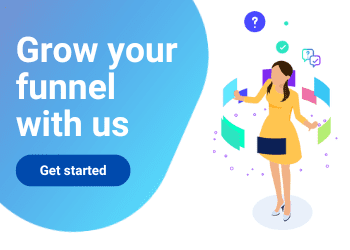How to Create Meaningful Connections on Social Media
John: Hey everybody, welcome back to the Life is Digital podcast. I’m your host, John Bianchi. It is great to be here with everybody today. I have a very special guest joining us today. Elysia Cadorniga is our Director of Client Services. How are you today?
Elysia: Hey John, good afternoon, I’m so glad to be on here.
John: It’s so great to have you here today. We are going to have a great chat.
Key Industry Facts
John: Before we get started, I just wanted to remind everybody to hit the Subscribe button and the like button in the comment section below. We will have some more information down there for you guys, but I wanted to kick it off today. Elysia works on our team, not only in building and developing our social media department, as we talk about social media today, and organic content, I just think it’s important to understand some key industry facts. As well as interesting things that she’s found in her research and what’s going on currently today. We were having a really interesting chat before we hopped on. Elysia, would you mind sharing some of those key industry facts that you shared with me with our audience?
Elysia: Sure. I frequently find myself looking at industry statistics online just to keep relevant with social media. Working alongside clients, It’s constantly evolving. One thing I thought that was interesting was a statistic I saw online that said 53% of consumers expect their brands to be transparent about a couple of things. Those being their products and services, and then their values. A lot of the times, other platforms may not be able to share that same story in regards to companies online. So, I thought it was really interesting and relevant to what we are gonna be talking about today as we dive deeper into content marketing.
John: That is so cool. I think social media does allow you to share stories differently and create what I guess everybody kind of now understands as organic content that is not corporate like. This organic content grows out of your brand. It is not necessarily supposed to be scripted, although we know there’s a lot of that going on, but it’s supposed to have that human element. I love the word that you mentioned transparency. Could you share a little bit more as a brand, and when you develop your social media strategy, what it means to have a robust organic content strategy, then maybe incorporate that transparency? What does that mean for a company to do that online?
Elysia: Yeah. So I think despite all the pressure with social networks of putting the pressure on brands to spend money in advertising, and while that’s great to drive new traffic in. What we have to be mindful of is being able to reach the existing audience, what I call “fan base” that they have, which is their customers. I think recently now, more than ever, transparency has been so vital to a brand and the longevity of having those relationships, simply because that connection is so important to continuously have with your consumers. They want to feel something. They want to feel that you can take big concepts about who you are, and your values as a business and make it relatable. Social media has allowed this kind of dichotomy between the professionalism, but also the very laid back to connect one-on-one interactions with your customers. So, I think that’s what’s so important about the organic strategy, is because you’re using all these free services, of all these social platforms online, and you are using that to build your customer base. As well as offer the transparency and tell them what’s going on in your business, how are you connecting with people, how are you making a difference, and how are you standing up to the quality of what you offer.
John: That makes perfect sense. I think what you’re talking about is the human element behind producing content. We’ve had that conversation on here several times on the podcast already, and I think something that we always kind of come back to is the importance of humanizing your brand and telling a cohesive story that relates to your audience. Maybe you need to be unique in the sense that you don’t need to speak to everyone, but you need to really define your brand, your message, and then find that target audience, so social media helps you do that. Right?
How to Drive Engagement On Social Media
John: I think maybe this is something I’d like to dive into a little bit more with you, is how do you drive that channel engagement when you’re working on accounts with and for our clients, how do we do that? How do we drive that channel of engagement through social media?
Elysia: So this is probably one of my favorite topics because I think it’s one of the biggest lies out there in terms of social media management. You’re probably familiar with the free services that we have, we can post statuses, updates, links, images, video content, but at the end of the day, the engagement side means engagement. So, while you are constantly sharing your story, you have to keep in mind that your customers constantly being inundated with so much other content, and what sets you apart is connecting with them one-on-one. Maybe that’s a following them and engaging with the content they have. Maybe it’s posing a question that sparks a completely new dialogue on your thread. So, what engagement does is, it plays a role in the actual conversation. Which then goes back to transparency, right?
Elysia: So, content and doing things organically on social. Billboards, as an example, we think of digital ads, right? That correlation makes sense to the organic posting and the organic engagement online with your customers, you have to do what it’s set out to do, which is communicate. To keep those conversations going to answer questions that your audience is asking, and to simply just give them a shout-out or like something that they’re sharing. A lot of times businesses don’t think to do that. Brands project all their content online, and they may miss the opportunity to bring in a new customer simply because of the lack of engagement on your channels.
John: That is a fascinating point. I think that goes back to what you said about transparency. People want to know that you are not there just as kind of the bullhorn, promoting, promoting, and promoting about your business. Although there’s a great and important time in place for providing relevant information. I love what you’re saying about engaging, maybe engaging with other people or your customers branded content. Things along those lines, so that you develop that story of your brand as being that humanization transparent company. Would you say that this is where, I think a lot of people have heard about this influencer marketing, there are probably many facets to it? I’m sure there are ways to do it well, and there are ways to do it not so well. In your experience influencer marketing valuable for clients? Maybe is it how they leverage that in their overall strategy.
Influencer Marketing
Elysia: Sure, I think it’s all the rage right now talking about influencer marketing. I think people know a lot about what it is that has no idea that behind the scenes that go on with finding the right influencer for the brand, and what that means.
Elysia: Influencers came about simply due to brands Lacking story development in connection, just by being the company themselves.
Elysia: Right? So, influencer, someone of influence in your community, whether it’s national, whether it’s city-wide or extremely local, that puts an impact because what it is, is it’s a testimonial to your product or service. Coming from someone else other than yourself. Think about when we are out and about, and we are wanting to get a referral on something. We are wanting to check reviews online. Well, if we know that one of our favorite local speakers in the area or one of our favorite local athletes is wrapping a certain brand or a product that we want to try or we believe in, it starts to make a stronger connection. That being said, I will wear at the same time, what you have to be careful with influencer marketing is finding the right influencer for the audience.
Elysia: It’s not about you. It’s not about your brand. It’s about who you’re trying to bring in as a long-term customer base. So, the influencer that you have plays a big role. Their reputation. How they engage with their community. What impact they’re doing online or in person. It is all the rage, and it’s becoming a lot more acceptable for brands to have these iconic people that come in and represent who they are and can testify to it.
Where and how to market your business on social media
John: That’s a great point. It almost reminds me of going into a restaurant in Midtown Manhattan or someplace in Los Angeles, and you see a photo of a famous person or our actor who’s eating at the restaurant, and it automatically gives that social proof. Where people begin to think like “well they ate there, so it must be great”. I kinda see the connection between your influencers. I love what you said about even being hyper-local with your customer base. If you’re a local company that does work in a certain region, maybe a national influencer or a national influencer campaign isn’t the right way to go, because the people that are most impacted by your brand are in this specific region. This can be powerful for restaurants, is going to be powerful for local businesses. Businesses that have that kind of regional footprint. I want to dive a little bit more into what you said about growing the audience. Is social media a good channel, or a good platform to use? Can it help you to find that specific audience, and maybe even develop some of that conversation? Do you think that it is a good channel for businesses to be on?
Elysia: Oh, absolutely, I do. I think what you have to understand as a business is where and what platforms your best fit, because there is an audience out there waiting to engage with you, wanting to connect with you. You do have to understand where I am gonna get the most engagement? Where’s my audience gonna be? For example, Facebook is continuously growing. It is still the number one platform in terms of businesses and engage with their customers. They’re going to be best suited for working with brands or companies that maybe have direct e-commerce online or maybe even in very local communities because they have built a platform that’s an extremely local-centric framework, right?
Elysia: You have pages, people can do events, people can sell things locally, it’s dialed into local. So a lot of your local businesses will find themselves being very successful at finding new customers there, but then you also have the other side of it where say you’re a B to B business, and your content might be better suited for a platform like LinkedIn, right? Where the conversations are there, the industries are there, to the topics of discussion, how you engage with people are there.
Elysia: I think what you have to first is identify where to be, but then also to bring them in organically, it takes time.
Elysia: So, think about the paid of advertising, it’s something that you can do upfront, that will acquire new business or acquire new followers to your platforms, but it also takes time testing those waters. Whereas organic is more of what’s your brand story, and how do you remain consistent over a long time, while continuing to reel them back in. That is the secret piece that most people wonder how in the world, as a business am I gonna continuously excite people. it goes back to being inundated was so much content, so I think at the end of the day, yeah, it’s extremely valuable for organic to be a part of your road map, and you can’t look at it as a one-stop effort, it is a long-term investment, but is well worth building that fan base. The best part about it, John, is that that fan base is then gonna go share that story or that product to other people, and that’s when you get into the fun words like viral… Right?
Elysia: So in business, everyone’s trying to be viral.
John: Yeah, no, I love what you said about it being that journey, where I think this is where you’re gonna need to take time to invest in your story. Nurture the audience, and have your finger on the pulse and know what is important to them as you develop your brand’s not necessarily gonna stay static over time. You may launch new products or new services, and your audiences may have different needs and interests over time. Nobody could have predicted what happened with COVID19, and there was probably very little way for businesses to get their messages out about something as simple as business operating hours, except by some of the social platforms with lockdowns, etc. We saw that social media was not only here to stay, but really important for the overall development of our community, business-wise, social-wise, and relationships.
Key Takeaways
John: As we come to the end of our conversation today. I wonder if you have a couple of like key takeaways you could leave the audience with. You mentioned so many great things about story development, and looking at it from a long-term perspective. What’s one or two things you could let a business owner or someone who’s looking to maybe start a social media campaign, what would you tell them to focus on?
Elysia: That is a good question. I’m sure I could probably come up with a long list of key takeaways in terms of social because it’s just so fast, but I think it goes back to the statistic that I shared. If you wanna show your customers or true values in your culture, while also learning about the values of your customers, that’s what social media and social and marketing is there for. I think people have to understand the use of it and to identify how that vehicle is meant to be used. Once you can marry the two, then it’s just a matter of delegating the management of how you’re gonna do it. So I cannot stress enough the impact of being transparent, and the impact of telling your story in a way that is valuable and it evokes emotion from your audience.
John: Elysia, it has been an absolute pleasure to have you onboard today. I love this conversation, and what’s resonating with me from everything you said is the idea of transparency, being genuine, engaging with your audience, and developing that conversation over time. So then, people who are focused on growing their ideas, we focus on. Let’s get our message out there, but I think it’s important to not lose sight of the fact that longer-term relationship development is what creates really strong foundations. So you’ve convinced me why social media is important, and I hope our listeners will appreciate that. Thanks, everybody for being with us today. Don’t forget to subscribe. Check out the links below. Give us a like and to share on social media, Facebook, Instagram, the other places that the podcast is available, we’ll be with you next week.
John: Thank you Elysia for being with us. It was an absolute pleasure.
Elysia: Absolutely, thank you.d











